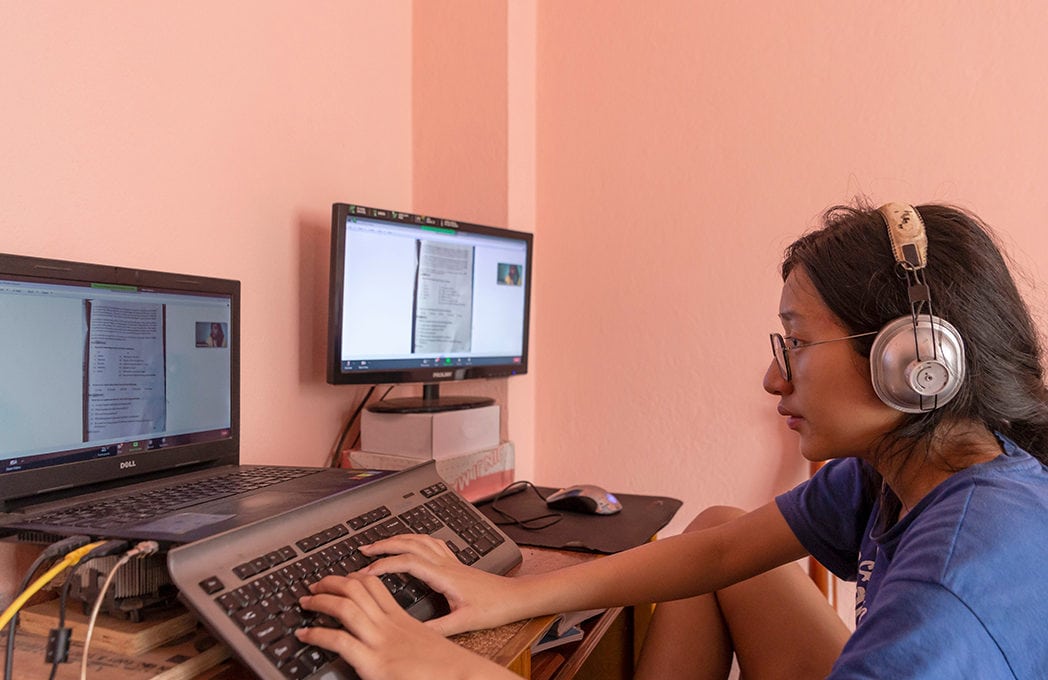
Nepal’s oldest science campuses go online
As the physicists at Tri-Chandra College in Kathmandu, Nepal, introduced remote education in response to the national COVID-19 lockdown in spring 2020, reports of the success spread quickly.
“Soon we received requests from our colleagues in mathematics, chemistry, biology, and environmental science. Then from other departments and institutions. It was like an avalanche!” says Iswar Koirala, Head of the Department of Physics at Tri-Chandra College, the oldest institution of higher education in Nepal.
Not only did e-learning allow the students to continue their education, but even improved their conditions, explains Iswar Koirala:
“Many of our students come from less fortunate family backgrounds and need to dedicate some of their time for work to afford their studies. Therefore, they cannot attend all lectures. Now, with education taking place over Zoom the sessions are recorded, and students can listen in when appropriate.”
Improved social life for female students
Further, the social life of the students has improved:
“This is especially true for the female students. Since women are not allowed to leave their home after 7 PM in Nepal, many female students felt frustrated. Now they can connect via Zoom. This has raised their quality of life immensely,” says Iswar Koirala.
Through their network in China, Iswar Koirala and his colleagues received early warnings on the COVID-19 outbreak in Wuhan.
“Several months before the national lockdown, we anticipated a need for introducing remote education. We collected the email addresses and phone numbers of our students. At the same time, we benefitted from connections in USA, where some of our former colleagues work today in large tech companies. So, when the lockdown happened, we were able to offer e-learning via Zoom.”
An avalanche starts rolling
Some 60 students attended the first e-class. Soon, another class was introduced, and then three more, bringing the total number of participating students up to 300. Then, the avalanche was already rolling.
“We were happy to assist our colleagues from other departments and institutions with advice, but we were faced with the problem that we simply did not have enough Zoom licenses,” says Iswar Koirala.
Here, NREN, the national research and education network of Nepal, offered its assistance.
“Thanks to licenses provided by NREN, the momentum was maintained, and today some 12,000 students are able to continue their studies through remote learning,” says Iswar Koirala, while adding that he feels strongly about the issue:
“As institutions of higher education, we have a responsibility. If education is not maintained, the nation will lose human resources that are badly needed. To my mind, not having higher education in place equals going back to the dark ages.”
Students press for virtual exams
The Head of Department notes, that not only education has benefitted from the new connectivity:
“If students have a suggestion or problem, it has proved much easier for them to deliver their message virtually. Also, exams are running more smoothly. I have actually had students pressurizing me to introduce virtual exams!”
Not only was the wish of the students at Tri-Chandra College heard. Today, many campuses in Nepal offer virtual exams.
“Over a very short period, e-learning has introduced drastic change for higher education in Nepal. This is a new paradigm. I really don’t think words can describe just how much things have changed,” Iswar Koirala concludes.
For more information please contact our contributor(s):

